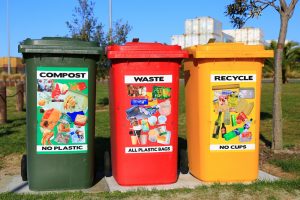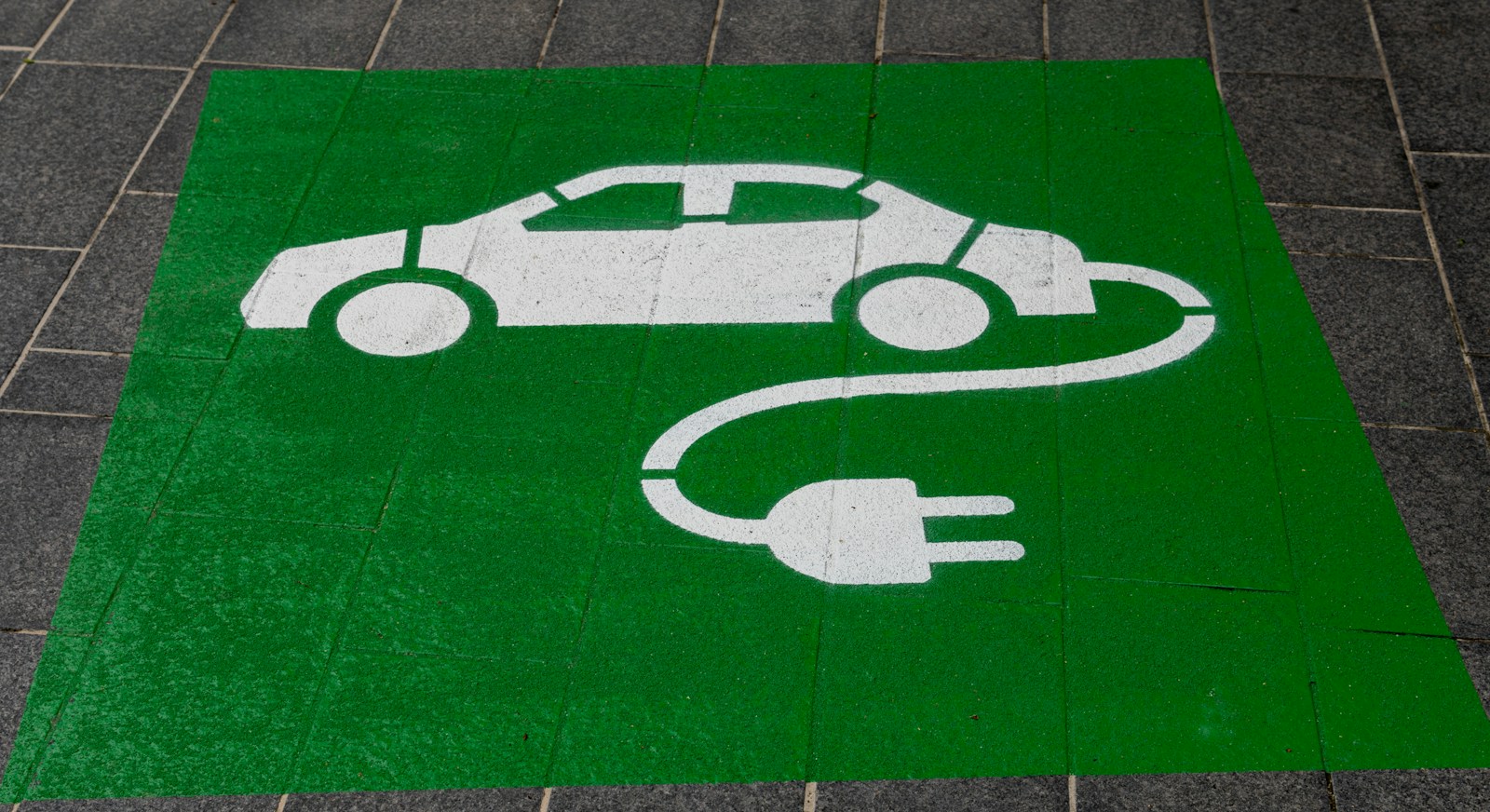Atlantic City Eco-Friendly Vacation: Getting There
Assembling Your Trip
To reach your eco-friendly vacation destination in Atlantic City, opt for public transport such as trains, buses, and cabs. If you are traveling from nearby cities, you can drive in or rent a car. Atlantic City is accessible through three major airports: Atlantic City International Airport (just 15 minutes), Philadelphia International Airport (6 miles), and Newark Liberty International Airport (north Jersey).
Atlantic City public transport options include the NJ Transit bus and train lines. By train, you can take the NJ Transit and Amtrak lines to reach your destination. For out-of-state and international passengers, bus services such as Greyhound and Megabus operate to and from the city. Once you reach Atlantic City, you can explore the city using EV (Electric Vehicle) shuttles, or bikes.
Pro Tip: To make your vacation more eco-friendly, plan your itinerary in advance and opt for low carbon-emitting travel options like bike rentals or public transport.
Going green has never been easier, just hop on an electric bike and pedal your way to eco-friendly transportation in Atlantic City.
Choosing eco-friendly transportation
Choosing Green, Eco-Friendly Transportation
Transportation can have a huge impact on the environment. Eco-friendly modes of transportation are beneficial for reducing emissions and promoting sustainability. Public transit such as Atlantic City’s famous Jitneys, which for a single trip or a day rate, will take you up and down Atlantic and Pacific Avenues as well as other locations throughout the city. Then there are the just as famous rolling chairs that take you up and down the boardwalk. On the boardwalk you also have the tram car. Be sure to check with all of these options for pricing and hours of operation. Then of course cycling, walking and electric vehicles all help to lower pollution and keep air quality high, which is good for people and the planet.
Going green also brings financial benefits. Over time, the money saved from less fuel and maintenance adds up.
Surprisingly, a bus with 45 seats can reduce air pollution just as much as if everyone drove hybrid cars. This was discovered in the Environmental Defense Fund report done by the Union of Concerned Scientists.
Public transportation options
There are many ways to get around. Try these methods:
- Buses offer city and suburban rides.
- Trams and light rail systems are faster for shorter distances.
- Taxis, ride-sharing and car-sharing are door-to-door.
- Bikes and e-scooters are popular in many cities.
- Coaches or long-distance buses travel between cities or counties.
Contact the local transport authority for more info.
Not all public transit options work 24/7, or on holidays. Check schedules before you go.
APTA says taking public transit can save over $9,000 a year in commuting expenses.
Sustainable Accommodations

Ok, this isn’t Atlantic City, but you get the drift, right? 🙂
Sustainable lodging options are a wise choice for travelers who are environmentally conscious. By opting for green accommodations, you can reduce your ecological footprint while still enjoying comfortable amenities. Such accommodations use renewable energy sources, sustainable materials, and implement energy conservation and recycling practices. Additionally, these options support local businesses and promote cultural experiences.
For instance, hotels in Atlantic City, such as the Showboat Hotel, have implemented sustainable practices. The hotel is equipped with energy-efficient lighting, low-flow toilets, and HVAC systems to reduce energy consumption. The Showboat also offers eco-tourism opportunities, such as bike rentals and beach clean-ups. Furthermore, The Borgata and Tropicana Atlantic City have also adopted sustainability practices, including LED lighting, water conservation, and eco-friendly toiletries.
Moreover, some sustainable accommodation options, like the Carisbrooke Inn Bed & Breakfast in nearby Ventnor City, offer unique experiences, such as farm-to-table breakfast options. The inn also supports the community by sourcing fresh produce from local farmers. Choosing such accommodations allows travelers to reduce their environmental impact while engaging in cultural and community activities.
Lasty, a friend of mine, who is passionate about sustainable tourism, shared their experience staying at the Chelsea Pub and Inn. The owner practices sustainability by composting and recycling, and the inn serves locally grown produce. My friend was pleasantly surprised by the cozy accommodations and enjoyed being part of the inn’s sustainability initiatives.
Find hotels with eco-certifications
Travelers are now more environmentally conscious, and looking for accommodations with eco-friendly certifications is a must. Here’s how to find sustainable hotels for your next trip:
- Look for hotels certified by organizations like LEED, Green Globe or EarthCheck.
- Check if the hotel recycles, minimizes waste and conserves energy.
- See if the hotel has renewable energy sources like solar panels or wind turbines.
- Check if the hotel has water conservation programs.
- Choose a place that supports local environmental initiatives and gives back to the community.
- Book stays at hotels that promote sustainable practices in all their chains.
Doing research for such hotels might be a bit time-consuming, but it’s worth it. The environment is supported and you can relax knowing you’re doing your bit.
Apart from eco-certified accommodation, sustainable tourism involves mindful transportation choices and supporting local businesses that prioritize sustainability.
One traveler shared her experience staying at an eco-friendly hotel in Costa Rica. She was amazed by the use of recycled materials in construction and the commitment to reducing plastic waste. She even joined a beach cleanup organized by the hotel staff, which further strengthened her decision to choose socially and environmentally responsible accommodations.
Opt for energy-efficient accommodations
Sustainable lodging options can positively influence the environment. Opt for accommodations which use renewable sources of energy, energy-saving technologies, and efficient insulation. These eco-friendly lodgings not only reduce carbon emissions, but also offset their environmental impact by planting trees or helping conservation efforts.
Moreover, search for accommodations that prioritize sustainability in their operations and purchase from local providers. This includes obtaining food and drinks from local farmers, using biodegradable cleaning products, and inspiring recycling programs. Such amenities encourage guests to maintain environmentally conscious practices during their stay.
Examine lodging facilities certified as ‘Green’ by reputable ecological certification bodies, such as Green Globe or Earth Check. These certificates are granted to establishments that meet high sustainability standards in various areas, including water usage, waste management, and community involvement.
A study, commissioned by Booking.com, indicates that 71% of travelers prefer sustainable accommodations for their trips, indicating the rising demand for eco-friendly accommodations worldwide.
Eating Sustainably
Eating Responsibly: While visiting Atlantic City, you have various options to eat sustainably. Opt for locally sourced produce at the restaurants that support green initiatives. Choose seafood from responsibly managed fisheries and avoid single-use plastics. Consider reducing meat intake and choose plant-based options.
Additionally, many hotels offer eco-friendly dining options, including composting and recycling. It’s best to research beforehand to ensure you’re making an informed choice.
When dining out, try to consume only what is required and take leftovers home. It minimizes food waste and conserves resources.
A USDA report found that food waste accounts for 30% to 40% of the US food supply. This waste harms the environment and contributes to landfills’ methane emissions, which are potent greenhouse gases.
Skip the fast food chains and indulge in some local flavor – your taste buds (and the local economy) will thank you for it.
Supporting local restaurants
Support sustainable eating practices by choosing restaurants that source their ingredients from local farmers and producers. This helps the local community and reduces the transportation carbon footprint.
Check out this article detailing a great number of Atlantic City’s restaurants: Experience the Flavors of Atlantic City: A Dining Guide.
Seasonal menus with fresher, healthier food grown without excessive chemicals are common. Plus, you can find a range of regional dishes that represent cultural heritage.
Benefits include economic growth and job creation, as local businesses are likely to spend their money locally.
Pro Tip: Research farm-to-table and locally-sourced restaurants near you. Many websites offer directories of sustainable dining options.
Eating plant-based meals
This option is certainly not for everyone but if you’re so inclined, there are options available in Atlantic City.
Here’s what to keep in mind when switching to a plant-based diet:
- Fruits, veg, grains, legumes – mix it up.
- Explore new recipes and tastes.
- Protein sources such as tofu, tempeh, beans and nuts.
- Healthy fats like avocado, olive oil or coconut oil.
- Cut down on (or out!) animal products like meat, dairy or eggs bit by bit.
- Check your nutrient intake and plan your meals.
It’s important to note that plant-based diets may need extra attention for certain nutrients such as iron, vitamin B12 and omega-3 fatty acids. Speak to a nutritionist for guidance.
To make the switch to plant-powered eating work for you, try small changes that fit in your lifestyle. Start with one meatless meal per week or trade cow’s milk for almond milk – it’ll reduce your carbon footprint and boost your health.
Eco-friendly Activities

For travelers interested in environmentally conscious activities. Atlantic City is a seasonal destination but has plenty to offer in and out of season!
- Explore the Boardwalk: Walking the boards is fun, healthy and offers a beautiful view of the beach and ocean.
- Eco-Friendly Transportation: Rent an electric bike or take a ride in an electric car to explore the city in a sustainable way.
- Get involved with Community Clean-Up: If spending some time here you could volunteer at beach clean-ups and local garden projects in Atlantic City.
- Green Dining: Enjoy a meal at one of the many eco-friendly restaurants in the area that use organic and locally-sourced ingredients.
- Learn about Marine Life: Visit the Atlantic City Aquarium to see a range of marine life and learn about local conservation efforts.
- Experience Sustainable Shopping: Visit the local farmers’ markets and boutiques that sell eco-friendly products.
For a unique eco-experience, explore Absecon Lighthouse, New Jersey’s tallest lighthouse, and learn about its history and restoration efforts. In the late 19th century, Absecon Lighthouse played a crucial role in guiding ships safely to shore. In 1999, it underwent a substantial renovation that included replacing the windows with energy-efficient ones and updating the electrical system. Today, visitors can climb the 228 steps to the top of the lighthouse for a stunning view of the surrounding area.
Get your steps in while exploring Atlantic City’s eco-friendly side, or just rent a bike and pretend you’re training for a race.
Biking or walking tours

Biking around Atlantic City is fun!
Exploring nature on foot or by bike is an excellent way to reduce carbon emissions. Here are four benefits:
- Decreasing your carbon footprint
- Exercise and physical activity
- Getting closer to the environment and locals
- Exploring hidden gems off the beaten path
Many tour companies offer eco-friendly options for city or nature-based explorations. To get a truly unique experience, try a self-guided bike tour or a walking tour with a local. They can offer interesting insights into your surroundings.
One traveler shared their story of trekking across Patagonia on foot. They developed a deep appreciation for minimalism and sustainability. Eco-friendly activities benefit the planet and your travel experiences.
Beach cleanup volunteer opportunities
Eco-friendly activities offer many opportunities for individuals to join beach cleaning. Everyone can help keep beaches and oceans clean. Here are five ways to participate in beach cleanup programs:
- Join a local environmental organization that does beach cleanups.
- Connect with community groups or businesses that organize beach cleanings.
- Participate in international coastal cleanup movements that happen yearly.
- Organize a small-scale cleanup event with friends and family on weekends.
- Donate to organizations that support coastal cleanup efforts.
Volunteers can also conduct public awareness campaigns to educate people about clean oceans and beaches. Working with schools and colleges to spread awareness is a great way to create a sustainable future.
8 million metric tons of plastic waste enter the world’s oceans each year. This causes major damage to marine life and ocean habitats. (Source: National Geographic). Beach cleaning activities can help reduce this problem.
Shopping Local and Ethical

Farmers Market
As a responsible traveler, it is important to support the local community and purchase products that align with ethical principles. Sustainable shopping involves searching for products that are made with eco-friendly materials, have a reduced carbon footprint, and are manufactured under fair labor conditions. In Atlantic City, there are numerous options for conscious shopping, from locally made handicrafts to ethical fashion stores.
Many stores in Atlantic City offer unique, handmade products that are sold directly by the local artisans themselves. Supporting local businesses not only benefits the local economy but also ensures that the products are authentic and sustainably produced. Additionally, visitors can purchase goods made from organic, recycled or upcycled materials, and products that are made without animal cruelty.
For a truly eco-friendly vacation experience, visitors can explore the local farmer’s markets, where they can purchase fresh, locally grown produce and support organic farming practices. The Atlantic City Farmers Market provides visitors with a wide variety of fresh produce options, including fruits, vegetables, honey, and much more.
Don’t miss out on the opportunity to shop sustainably and ethically during your visit to Atlantic City. Make a conscious decision to support local businesses and choose products that align with your values. By doing so, you will not only have a positive impact on the environment but also on the local community.
Skip the generic souvenirs and bring home a piece of Atlantic City’s charm by supporting local artisans and businesses.
Supporting local artisans and businesses
Backing and supporting local goods and craftspeople is a worthy action. It not only boosts their business, but also preserves the local culture and heritage. We’ve rounded up five points to keep in mind when supporting local artisans and businesses:
- Choose products made from locally sourced materials or ingredients.
- Look for sustainably produced items with minimal environmental impact.
- Take time to know the story behind the product and the maker.
- Respect the set price by the artisan – no haggling . . . well, maybe a little!
- Spread the word – recommend your favorite local businesses.
Supporting small artisans and businesses is essential. It reflects regional norms and can revive economic opportunities in a community. In India, an estimated 70-80% of female workforce are informal workers in sectors such as agriculture, weaving and handicrafts production. This shows how buying local products can empower marginalized communities.
According to National Geographic’s “Your Guide To Ethical Fashion,” ethical shopping won’t solve all our problems. We have arrived here due to years of careless consumption and waste disposal.
Shopping for eco-friendly products
As buyers, it’s essential to think about the effects of our purchases on the environment. Shopping for eco-friendly and ethical products is a small change that can make a huge difference for the future. Here are some tips to shop the green way:
- Go for reusable items instead of disposable ones
- Look for products made of natural and renewable materials
- Support local businesses that prioritize sustainability
Remember: Every purchase has its consequences. Choosing eco-friendly products lessens our carbon footprint and makes the planet healthier.
Pro Tip: When shopping online, watch out for the company’s packaging and shipping methods. Choose firms that use sustainable and minimal packaging materials.
Wildlife Conservation
In Atlantic City, the preservation of wildlife is of utmost importance to maintain the ecological balance. Efforts are made to conserve marine life, shorebirds and beach-nesting birds. Local authorities have installed nest boxes and the use of beach buggies is regulated to protect nesting sites. Visitors are highly encouraged to practice responsible tourism to support these efforts and conserve the unique biodiversity of the region.
Just west of Atlantic City on Route 9 you’ll find the Edwin B. Forsythe National Wildlife Refuge. You can hike on woods or marsh trails or take your care out over the marshes and enjoy the wide variety of birdlife. You may also catch a glimpse of other animals and sea creatures. The last time I was there we saw a raccoon as well as horseshoe crabs and many bird varieties.
In addition to traditional conservation measures, local businesses have also taken the initiative to promote eco-friendly practices and raise awareness about the importance of ethical tourism. Hotels offer guests the option to reuse towels and sheets to reduce water usage, while restaurants prioritize sourcing ingredients from local farms for a farm-to-table experience.
To fully immerse oneself in the conservation efforts of Atlantic City, visitors can participate in various eco-tourism activities, such as guided birdwatching tours or beach cleanups. These activities not only offer an educational experience but also contribute to the well-being of the environment.
Pro Tip: Encourage others to take part in the conservation efforts by spreading awareness and supporting eco-friendly businesses.
Get ready to sea some amazing creatures at the Atlantic City Aquarium, just don’t get too attached or you’ll end up like Nemo’s dad.
Visiting the Atlantic City Aquarium
Discover the amazing marine world at Atlantic City Aquarium. Check out exhibits with animals and habitats from all over the globe. Interact with interactive displays and take part in educational programs.
Plus, come face-to-face with sharks, stingrays, and sea turtles in a big tank with almost 22,000 gallons of seawater! Feed the animals or attend their lectures to learn more.
This modern facility is committed to wildlife protection and helping visitors appreciate the beauty and diversity of marine creatures.
The National Oceanic and Atmospheric Administration found aquariums are key in teaching visitors the significance of ocean conservation.
Participating in educational tours for conservation efforts
Educational Tours for Wildlife Conservation: A Must!
Taking part in educational tours for wildlife conservation is an urgent need. People must realize how their actions can affect the environment and wildlife.
- 1. Understanding conservation efforts: These tours help people understand the importance of conservation better. Witnessing endangered species in their natural habitat boosts responsibility and highlights preservation techniques.
- 2. Raising awareness: Participating in these tours increases knowledge on environmental and wildlife matters, helping promote environmental awareness and conservation.
- 3. Contributing towards conservation: Taking part in educational tours makes individuals more likely to donate time and resources to aid conservation efforts.
Apart from learning and raising awareness, these tours also allow individuals to connect with nature. It encourages hands-on engagement with rescued animals or those requiring rehabilitation.
Sharing knowledge is key to creating effective measures for wildlife protection. The public must know how critical biodiversity is for ecological sustainability. According to WWF reports, everyday human activities impact at least one endangered species daily.
Another option in the summer months are the Atlantic City walking tours. If you’re off-season now, maybe plan ahead to see some sights, learn some history, and get a good dose of fresh air and exercise!
Recycling and Waste Reduction

In terms of ecological conservation efforts, ensuring the proper disposal of waste and minimizing pollution hold significant importance. Considerations regarding waste reduction contribute positively to sustaining environmental health and assist in creating a more eco-friendly destination.
- Waste separation initiatives are established to ensure that all recyclables can be diverted from landfill. Recycling bins are readily available and encourage visitors to dispose of their waste accordingly.
- Local restaurants have taken steps to reduce food waste through composting and donating leftover food to charitable organizations.
- Plastic reduction campaigns have been implemented, and visitors are encouraged to carry reusable bags, water bottles, and straws.
- Hotels and resorts minimize their environmental impact by implementing towel and linen reuse programs, reducing plastic usage, and installing energy-saving features.
It is worth mentioning that the city has taken innovative approaches to waste management. For instance, the Atlantic City Sewerage Company runs an efficient wastewater treatment plant that aids in reducing pollution levels.
A local business owner’s contribution to environmental conservation is worth noting. They started a community plastic collection drive that encourages residents and visitors to dispose of their waste responsibly. This positive initiative has helped reduce plastic waste significantly and has contributed to creating a cleaner environment.
Recycling is like winning at the casino – you never know how much you’ll save, but you know it’s always better than throwing it all away.
Choosing to recycle or reduce waste
When it comes to environmental responsibility, we must think of recycling or reducing waste. Here are four important points:
- Recycling: It saves energy, cuts down on landfill waste, and conserves natural resources.
- Reducing Waste: Use reusable items, avoid disposable goods and packaging, and buy recycled products.
- Economic Benefits: Choosing to recycle or reduce waste can save money and decrease waste disposal.
- Societal Impact: When more people choose to recycle or reduce waste, the environment and community benefit.
It’s essential to know that efforts to save our planet matter. So, raising awareness on recycling and reducing waste is worth investing in.
Pro Tip: Check if your local municipality provides recycling programs/resources before throwing anything out.
Properly disposing of hazardous waste
When handling hazardous waste, it’s essential to discard it properly and safely. Not doing so can bring about huge health and environmental risks. Here’s a 4-step guide to disposing of hazardous waste the right way:
- Figure out what type of hazardous waste you have – like batteries, chemicals, or electronics.
- Check local laws – they vary across places, so know the regulations about hazardous waste disposal.
- Pack the hazardous waste properly – use double-bagging and label them accordingly.
- Take the hazardous waste to an approved disposal facility – where it can be treated and thrown away correctly.
Be aware that not all facilities accept all types of hazardous waste. Thus, it’s important to do research and make sure you’re taking the waste to a suitable location.
Always remember that government protocols and regulations are implemented for your safety as well as for the planet.
To prevent accidental negligence on disposing hazardous waste, never forget to find out the best way to throw away hazardous products. You don’t want anyone getting hurt because of a careless or ignorant attitude toward Environmental conservation!
Conclusion
As you plan your eco-friendly vacation in Atlantic City, keep in mind the various sustainable options available. From green accommodations to local, organic dining and eco-adventures, your visit can have a positive impact on the environment. With a range of activities that allow you to get closer to nature, Atlantic City is an ideal destination for eco-conscious travelers.
To enhance your experience, consider exploring lesser-known spots in the area, such as the Edwin B. Forsythe National Wildlife Refuge, which is home to an abundance of wildlife. Pro Tip: Reduce your carbon footprint by utilizing public transportation or renting a bike to get around town.
Green means go, so let’s recap the sustainable practices we need to know!
Recap of sustainable practices while on vacation.
Making sustainability a priority is essential for eco-friendly vacations. Here are 3 main strategies to keep in mind:
- Bring reusable water bottles and bags, to skip buying plastic.
- Use public transport or walk, to keep emissions low.
- Choose eco-friendly accommodations that conserve resources and reduce waste.
Moreover, it’s beneficial to research local sustainability initiatives before your trip. This helps you positively contribute, instead of unknowingly damaging fragile ecosystems.
Did you know? Over 1 million species face extinction due to human activities. (Source: Intergovernmental Science-Policy Platform on Biodiversity and Ecosystem Services)
Frequently Asked Questions
Q: What is an eco-friendly vacation in Atlantic City?
A: An eco-friendly vacation in Atlantic City is one where conservation and environmental protection are prioritized in all aspects of the trip, from transportation to lodging to activities.
Q: What are some eco-friendly lodging options in Atlantic City?
A: There are several eco-friendly lodging options in Atlantic City, including the Borgata Hotel Casino & Spa, the Sheraton Atlantic City Convention Center Hotel, and the Ocean Resort Casino.
Q: What are some eco-friendly activities to do in Atlantic City?
A: There are many eco-friendly activities to do in Atlantic City, such as visiting the Atlantic City Aquarium, exploring the Absecon Lighthouse, and taking a bike tour of the city.
Q: How can I make my transportation eco-friendly in Atlantic City?A: You can make your transportation eco-friendly in Atlantic City by renting a fuel-efficient car, taking public transportation, or walking or biking to your destinations.
Q: What are some eco-friendly restaurants in Atlantic City?
A: Some eco-friendly restaurants in Atlantic City include Dock’s Oyster House, and the Knife & Fork Inn, which source their ingredients locally and have sustainable practices.
Q: What are some benefits of an eco-friendly vacation in Atlantic City?
A: Some benefits of an eco-friendly vacation in Atlantic City include reducing your environmental impact, supporting local businesses that prioritize sustainability, and experiencing unique and eco-friendly activities that you may not have considered before.
Discover Endless Adventure with Outdoor Activities in Atlantic City





